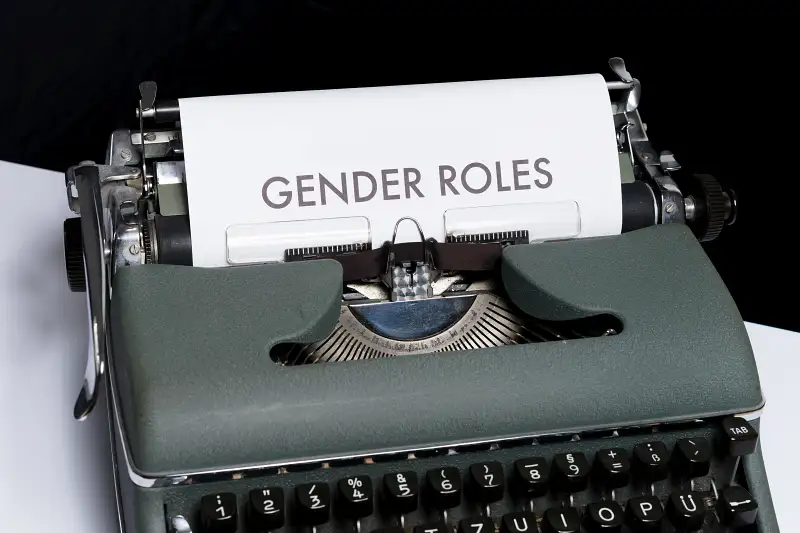Table of Contents
- Understanding Social Constructionism
- Gender as a Social Construct
- Gender Norms and Their Impact
- The Role of Institutions in Constructing Gender
- Gender, Power, and Inequality
- Conclusion
The concept of gender has been a subject of extensive debate and analysis within the field of sociology. While early understandings of gender often conflated it with biological sex, contemporary sociological perspectives have increasingly emphasized the socially constructed nature of gender. The social constructionist view posits that gender is not an inherent biological trait but rather a complex set of socially mediated behaviors, roles, and identities. This perspective challenges essentialist notions of gender, highlighting the ways in which gender norms and expectations are produced, reproduced, and challenged within different cultural and historical contexts.
Understanding Social Constructionism
Defining Social Constructionism
Social constructionism is a theoretical framework that suggests that many aspects of our social reality, including knowledge, identities, and practices, are not innate but are constructed through social processes and interactions. This perspective asserts that our understanding of the world is shaped by the collective agreements and shared meanings created by people within a society. In the context of gender, social constructionism examines how cultural norms, social institutions, and interpersonal interactions contribute to the formation and perpetuation of gender roles and identities.
The Role of Language and Discourse
Language and discourse play a crucial role in the social construction of gender. Through language, societies create and communicate norms and expectations about gender. Discourses about what it means to be “masculine” or “feminine” are perpetuated through media, education, family, and other social institutions. These discourses shape individuals’ perceptions of themselves and others, influencing their behaviors and interactions. By examining the language and narratives used to describe gender, sociologists can uncover the underlying power dynamics and social structures that sustain gender inequalities.
Gender as a Social Construct
The Distinction Between Sex and Gender
A key aspect of the social constructionist view is the distinction between sex and gender. Sex refers to the biological differences between males and females, such as chromosomes, hormones, and reproductive organs. Gender, on the other hand, refers to the social and cultural meanings attached to these biological differences. While sex is often seen as a binary concept (male/female), gender is understood as a spectrum, encompassing a wide range of identities and expressions. This distinction allows sociologists to explore how gender roles and expectations vary across different societies and historical periods.
The Creation of Gender Roles
Gender roles are the behaviors, attitudes, and expectations that society considers appropriate for individuals based on their perceived gender. These roles are learned through socialization processes that begin at birth and continue throughout a person’s life. Family, education, peer groups, and media are key agents of socialization that teach individuals how to perform their gender. For example, children may be encouraged to play with gender-specific toys, such as dolls for girls and trucks for boys, reinforcing traditional gender roles. These roles are not fixed; they can change over time and vary between cultures, illustrating the fluid and constructed nature of gender.
Intersectionality and the Construction of Gender
Intersectionality is a concept that highlights how various social identities, such as race, class, and sexuality, intersect and interact to shape an individual’s experiences and social position. The social construction of gender is deeply intertwined with other forms of identity and oppression. For example, the experiences of a Black woman may differ significantly from those of a white woman or a Black man, due to the intersecting effects of racism and sexism. Understanding gender through an intersectional lens allows sociologists to recognize the diversity of gender experiences and the multiple dimensions of power and inequality that shape these experiences.
Gender Norms and Their Impact
The Enforcement of Gender Norms
Gender norms are the societal expectations and rules about how individuals should behave based on their gender. These norms are enforced through various mechanisms, including socialization, peer pressure, and institutional policies. Nonconformity to gender norms can result in social sanctions, such as ridicule, discrimination, or exclusion. For instance, a man who displays emotions openly may be labeled as “unmanly,” while a woman who pursues a high-powered career may be seen as neglecting her “natural” role as a caregiver. These norms serve to maintain traditional gender hierarchies and limit the opportunities available to individuals based on their gender.
The Impact on Identity and Self-Perception
The social construction of gender profoundly impacts individuals’ identities and self-perceptions. From a young age, people internalize gender norms and expectations, shaping their sense of self and guiding their behaviors. For example, a girl who is repeatedly told that she is “pretty” may come to prioritize her appearance over other attributes, while a boy who is encouraged to be “tough” may suppress emotions and vulnerability. These internalized norms can influence career choices, relationships, and mental health, demonstrating the pervasive effects of gender socialization on individuals’ lives.
Challenging and Resisting Gender Norms
Get the full article AD FREE. Join now for full access to all premium articles.
View Plans & Subscribe Already a member? Log in.





